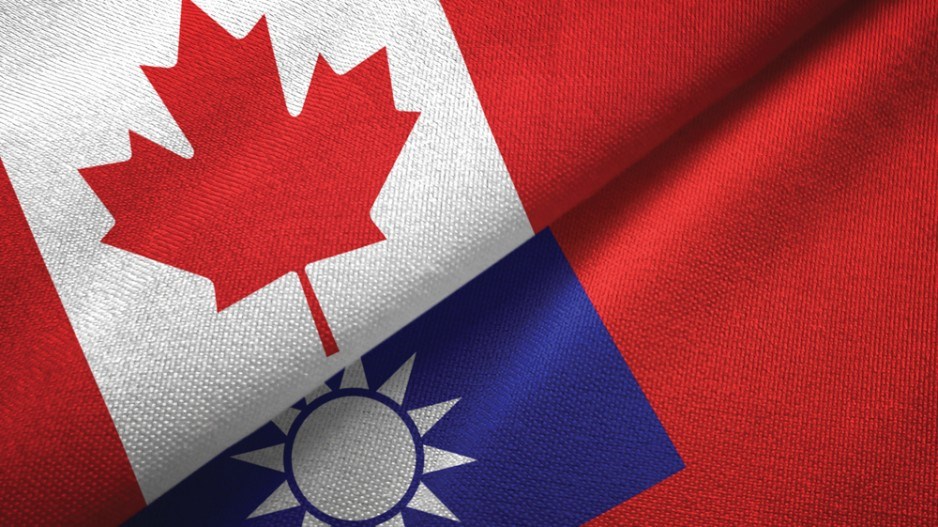Taiwan’s top diplomat in Vancouver said the 10 members of Parliament touring the island nation this week are not only talking trade, but learning about advanced efforts to counter interference by the People’s Republic of China (PRC).
The self-governing democracy is preparing to elect a new president next January, as President Tsai Ing-wen of the Democratic Progressive Party completes her second term.
Lihsin Angel Liu, director general of the Taipei Economic and Cultural Office (TECO), Taiwan’s de facto consulate in Vancouver, said the Taiwanese are expecting the Chinese Communist Party and its proxies to meddle in the election again.
“We are facing more aggressive cognitive warfare from the PRC,” Liu said.
The government has co-operated with a variety of civil society organizations to monitor, fact-check and debunk any kind of fake news that could disrupt the Taiwanese population.
“So, there is a whole-of-the-government approach to fight against the Chinese cognitive warfare against Taiwan,” Liu said.
The most-prominent group is called the Doublethink Lab, but there are others providing similar services, with names like Cofacts, MyGoPen,Taiwan FactCheck Center and Fake News Cleaner.
Doublethink’s 2021 report on the 2020 presidential election, called Deafening Whispers, found countless disseminators of political and financial disinformation in both China and Taiwan, whose goal was to disrupt the election and influence its outcome. Many pushed a narrative that “democracy is a failure” in order to cast China in a favourable light and belittle both Taiwan and Hong Kong.
Tsai won in a landslide, but Doublethink warned against complacency.
“Unlike the previous view that China's cyber army is only ‘cheerleading,’ China's information operations are also negative and aggressive. They amplify discord, harshly criticize certain ideologies, and fabricate conspiracies,” said the report.
Liu said it wasn’t the first time Taiwanese resisted Mainland China propaganda. In 2014, the Sunflower Movement stopped the ruling Kuomintang government’s trade agreement with China, amid a media campaign to convince Taiwanese to develop closer ties with China.
The MPs from four parties, led by National Defence Committee chair John McKay (Liberal), and including Surrey Liberal MPs Ken Hardie and Sandeep Sarai, arrived in Taipei as China’s military was wrapping up three days of war games to intimidate Taiwan after Tsai returned from a trip that included a Los Angeles meeting with U.S. House Speaker Kevin McCarthy.
Xi Jinping has made annexing the nation of 23 million, roughly the size of Vancouver Island, a priority for China and has threatened to use force. The U.S. has promised to defend Taiwan if China attacks. China and Taiwan are separated by the 180-kilometre Taiwan Strait, but Taiwan’s territory also includes the Kinmen Islands, just 10 kilometres from Xiamen in China’s Fujian province.
When the delegation met with Tsai on Wednesday, she said that it is critical for democracies to stand together, in the face of authoritarian expansionism.
“Canada is a very important democratic partner to Taiwan. We will do our utmost to jointly safeguard the values of freedom and democracy with Canada and other like-minded international partners,” Tsai said.
According to a transcript on Tsai’s website, McKay said the group was eager to learn how Taiwan has strengthened its democracy and prosperity amid the challenges of its bigger, hostile neighbour across the Taiwan Strait.
“I'm sure you've been briefed on the interference and influence operations carried on by the government of China in Canada,” McKay said. “And that has heightened our awareness of these times and brought us together as nations – democratic nations who are facing this menace.”
Liu said the trip to Taiwan also includes meetings about Indigenous relations. Like Canada, Taiwan is also embracing reconciliation with Indigenous Peoples.
“Transformative justice, as we call in Taiwan, is what President Tsai since her election, as President of Taiwan, she has vowed to do something for the Indigenous community,” she said.
Taiwan’s Indigenous affairs ministry has endeavoured to spur economic and education opportunities for Indigenous Peoples. Indigenous groups have also traveled to 小蓝视频 to collaborate with First Nations here.
“To talk about cultural and language revitalization for both countries, to learn from each other. I think this means a lot,” Liu said.



